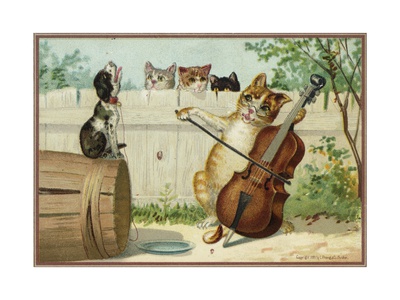From a study by Nathalie Gosselin, Séverine Samson, Ralph Adolphs, Marion Noulhiane, Mathieu Roy, Dominique Hasboun, Michel Baulac, and Isabelle Peretz :
Music is typically a pleasurable experience. But under certain circumstances, music can also be unpleasant, for example, when a young child randomly hits piano keys. Such unpleasant musical experiences have been shown to activate a network of brain structures involved in emotion, mostly located in the medial temporal lobe: the parahippocampal gyrus, amygdala, hippocampus and temporal pole. However, the differential roles of these regions remain largely unknown. In this study, pleasant and unpleasant music was presented to 17 patients with variable excisions of the medial temporal lobe, as well as to 19 matched controls. The pleasant music corresponded to happy and sad selections taken from the classical instrumental repertoire; the unpleasant music was the dissonant arrangement of the same selections. Only patients with substantial resections of the left or right parahippocampal cortex (PHC) gave highly abnormal judgements to dissonant music; they rated dissonant music as slightly pleasant while controls found it unpleasant. This indifference to dissonance was correlated with the remaining volume in the PHC, but was unrelated to the volume of the surrounding structures. The impairment was specific: the same patients judged consonant music to be pleasant, and were able to judge music as happy or sad. Furthermore, this lack of responsiveness to unpleasantness was not due to a perceptual disorder, because all patients were able to detect intentional errors in the musical excerpts. Moreover, the impairment differed from that induced by amygdala damage alone. These findings are consistent with a two-dimensional model of defensive responses to aversive stimuli, in which the PHC and the amygdala subserve different roles.
So, we see that the parahippocampal cortex, if significantly damaged, eliminates the unpleasantness associated with dissonant music.
And now, another study by Moshe Bar, Elissa Aminoff, and Daniel L. Schacter involving the parahippocampal cortex:
The parahippocampal cortex (PHC) has been implicated in both place/scene processing and episodic memory. We proposed that this region should instead be seen as intrinsically mediating contextual associations and not place/scene processing or episodic memory exclusively. Given that place/scene processing and episodic memory both rely on associations, this modified framework provides a platform for reconciling what seemed like different roles assigned to the same region. Comparing scenes with scenes, we show here that the PHC responds significantly more strongly to scenes with rich contextual associations compared with scenes of equal visual qualities but less [sic] associations. This result adds unequivocal support to the view that the PHC mediates contextual associations in general rather than places or scenes proper, and necessitates a revision of the current view that the PHC contains a dedicated place/scenes “module.”
In this study, the parahippocampal cortex is seen to be responsible for associations in general. So we see that the association of dissonant music with unpleasantness is the province of the parahippocampal cortex. Now one wonders about the early 20th-century dissonant composers, and the effect their music might have on our brains.
See the Neuroanatomy page for an explanation of what the various affected parts of the brain do.
